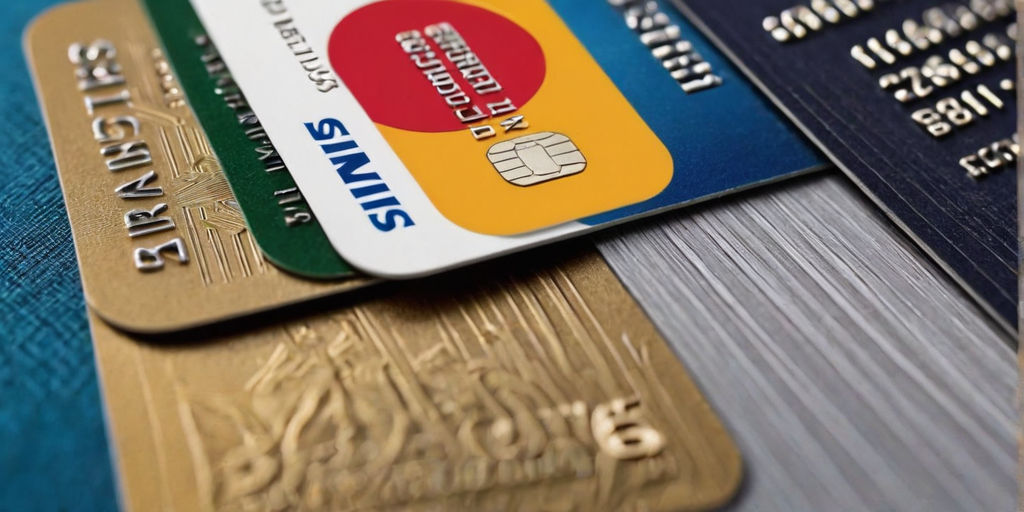
Debit cards and credit cards are essential financial tools that offer convenience and flexibility in managing your expenses in Singapore. Understanding the key differences between these two types of cards is crucial for making informed decisions about your personal finances. From benefits and rewards to security features and fraud protection, each card type has its unique advantages and considerations to keep in mind.
When comparing debit and credit cards, it’s important to weigh the benefits and rewards each offers. Additionally, understanding the security features and fraud protection measures in place for both card types is essential for safeguarding your financial transactions. As you navigate the array of options available, it’s important to consider your lifestyle and spending habits to choose the card that best aligns with your financial goals and needs in Singapore.
Key Takeaways
- Consider the benefits and rewards offered by debit and credit cards to make an informed choice.
- Understand the security features and fraud protection measures for each card type.
- Choose a card that aligns with your lifestyle and financial goals in Singapore.
Understanding Debit and Credit Cards
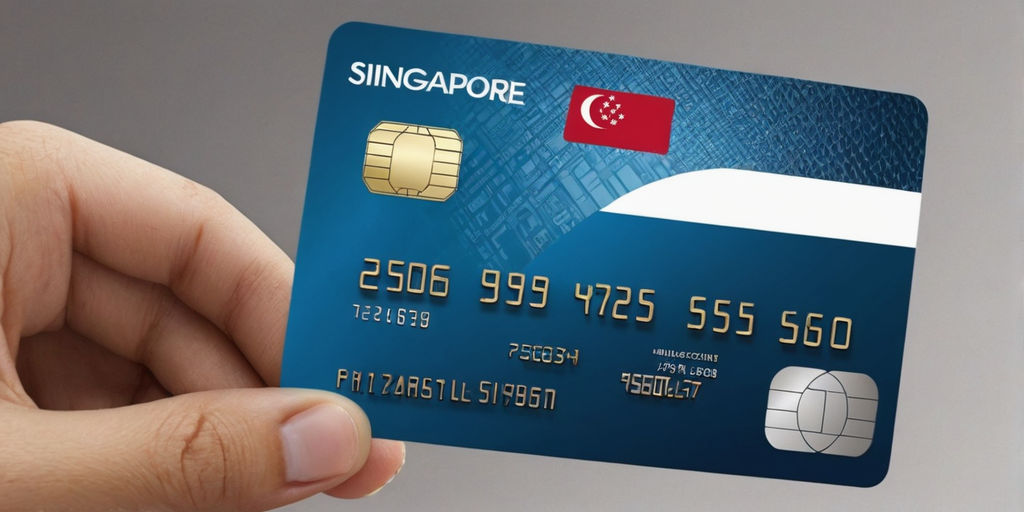
If you’re new to personal finance, you might be wondering about the differences between debit and credit cards. Both types of cards have their advantages and disadvantages, and it’s important to understand them before deciding which one to use.
What Are Debit Cards?
A debit card is a card that is linked to your bank account. When you use your debit card to make a purchase, the money is deducted directly from your account. You can also use your debit card to withdraw cash from an ATM.
One advantage of using a debit card is that you can only spend the money that you have in your account. This can help you avoid overspending and getting into debt. Another advantage is that you don’t have to worry about interest charges, since you’re not borrowing money.
What Are Credit Cards?
A credit card is a card that allows you to borrow money from a bank or other financial institution. When you use your credit card to make a purchase, you’re essentially taking out a loan. You’ll need to pay back the money you borrow, plus interest.
One advantage of using a credit card is that you can make purchases even if you don’t have the money in your bank account at the time. This can be useful in emergencies or when you need to make a large purchase. Another advantage is that many credit cards offer rewards programs that allow you to earn points or cash back on your purchases.
It’s important to remember that using a credit card can also come with risks. If you don’t pay off your balance in full each month, you’ll be charged interest, which can add up quickly. You’ll also need to be careful not to overspend and end up in debt.
When it comes to debit and credit cards, there are also differences in how they’re used. For example, debit cards are often used for everyday purchases, while credit cards are often used for larger purchases or for building credit. Additionally, credit cards often offer additional benefits such as travel insurance or purchase protection.
Whether you choose to use a debit card or a credit card will depend on your personal financial situation and your spending habits. It’s important to understand the advantages and disadvantages of each type of card before making a decision.
Key Differences Between Debit and Credit Cards

Payment Methods and Cashflow
When it comes to payment methods, debit cards are linked directly to your bank account, allowing you to spend only the money you have. This can help you manage your cash flow effectively and avoid going into debt. On the other hand, credit cards provide you with a line of credit, enabling you to make purchases and pay for them later. This can be beneficial for managing larger expenses or unexpected costs.
Interest Rates and Fees
Debit cards typically do not charge interest as the funds are directly deducted from your bank account. However, credit cards often come with interest rates, especially if you carry a balance from month to month. Additionally, credit cards may have annual fees and transaction fees, while debit cards usually have fewer associated costs.
Credit Limits and Overdrafts
With a debit card, your spending is limited to the available balance in your bank account, preventing you from overspending. Conversely, credit cards come with a predetermined credit limit, allowing you to borrow money up to that limit. Be cautious, as exceeding this limit may lead to additional fees or penalties.
By understanding these key differences, you can make an informed decision on which payment method best suits your financial needs and goals.
Benefits and Rewards: A Comparative Analysis

When it comes to choosing between debit and credit cards, one of the most important factors to consider is the benefits and rewards that each type of card offers. Here’s a comparative analysis of the rewards and perks that you can expect from both debit and credit cards in Singapore.
Rewards and Points
Credit cards are known for their reward systems, which allow you to earn points that can be redeemed for a range of perks and benefits. These points can be earned through various transactions, such as dining, shopping, and travel. On the other hand, debit cards typically offer fewer reward options and lower point earning rates. However, some debit cards do offer reward systems, such as the Citibank Debit Mastercard which allows you to earn reward points for every dollar spent.
Cashback and Discounts
One of the most popular benefits of using credit cards is the cashback system. Cashback cards credit cash directly into your card, while accumulated reward points can be used to redeem discounts or cashback. Debit cards, on the other hand, typically offer lower cashback rates and fewer discounts. However, some debit cards do offer cashback systems, such as the DBS Visa Debit Card which offers up to 5% cashback on online purchases.
Travel Perks: Miles and More
When it comes to travel perks, credit cards are the clear winner. Miles cards allow you to earn air miles for every dollar spent, which can be redeemed for flights, hotel stays, and other travel-related expenses. Some credit cards also offer perks such as complimentary lounge access, travel insurance, and discounts on car rentals. Debit cards, on the other hand, typically offer fewer travel perks and lower miles earning rates. However, some debit cards do offer travel-related benefits, such as the UOB One Debit Card which offers discounts on travel insurance and hotel bookings.
In conclusion, both debit and credit cards offer a range of benefits and rewards that can make your spending more enjoyable and rewarding. While credit cards are typically more generous in terms of rewards and perks, debit cards can also offer some attractive benefits. Ultimately, the choice between debit and credit cards depends on your spending habits and financial goals.
Security Features and Fraud Protection

When it comes to security features and fraud protection, both debit and credit cards offer various measures to safeguard your transactions. Understanding the fraud liability and protection measures associated with each type of card is crucial in determining which is better suited for your needs.
Fraud Liability and Protection Measures
Debit cards and credit cards in Singapore provide different levels of protection against fraudulent activities. Credit cards generally offer more extensive protection, often covering unauthorized transactions and providing reimbursement in case of fraud. On the other hand, debit cards may have more limited liability protection, and the recovery process for unauthorized transactions can be more complex.
It’s essential to review the specific fraud protection policies of your chosen financial institution and understand the liability limitations associated with your debit or credit card. By staying informed about the security features and fraud protection offered by each card, you can make well-informed decisions to ensure the safety of your financial transactions.
Financial Management and Personal Finance Implications
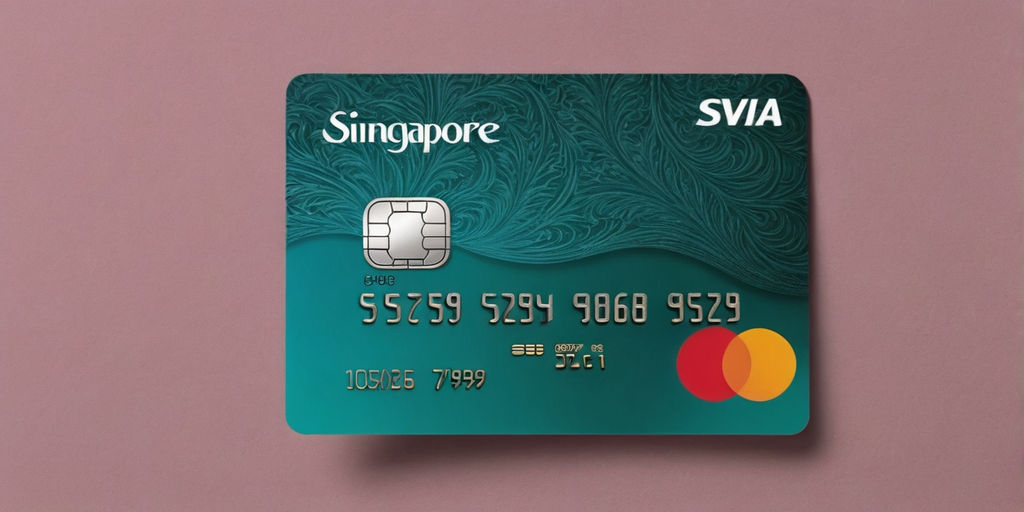
Managing your finances effectively is crucial for achieving your financial goals. Whether you prefer to use a debit card or a credit card, it’s important to understand how each affects your personal finances. Here are some key areas where debit and credit cards differ:
Budgeting and Expense Tracking
One of the biggest advantages of using a debit card is that it helps you stay within your budget. Since a debit card is linked to your bank account, you can only spend what you have. This helps you avoid overspending and accumulating debt.
On the other hand, credit cards can make it easy to overspend and accumulate debt since you can spend beyond your means. However, many credit cards offer expense tracking tools that can help you monitor your spending and stay within your budget.
Building a Healthy Credit Score
Your credit score is a crucial factor in determining your ability to borrow money. Using a credit card responsibly can help you build a healthy credit score. When you use your credit card and make timely payments, you demonstrate to lenders that you are a responsible borrower. This can help you qualify for loans and credit products with better terms and rates in the future.
While using a debit card doesn’t directly affect your credit score, it can indirectly impact it. If you use your debit card to pay bills on time, this can help you maintain a good payment history, which is an important factor in determining your credit score.
Avoiding Debt and Overspending
Debt can be a major financial burden, so it’s important to avoid accumulating it whenever possible. Using a debit card can help you avoid debt since you can only spend what you have. This can help you stay within your means and avoid rollover debt.
Credit cards, on the other hand, can make it easy to overspend and accumulate debt. If you choose to use a credit card, it’s important to spend within your means and pay your balance in full each month to avoid accumulating high-interest debt.
In summary, both debit and credit cards have their advantages and disadvantages when it comes to financial management and personal finance. Ultimately, the best choice for you depends on your individual financial goals and circumstances.
Choosing the Right Card for Your Lifestyle in Singapore
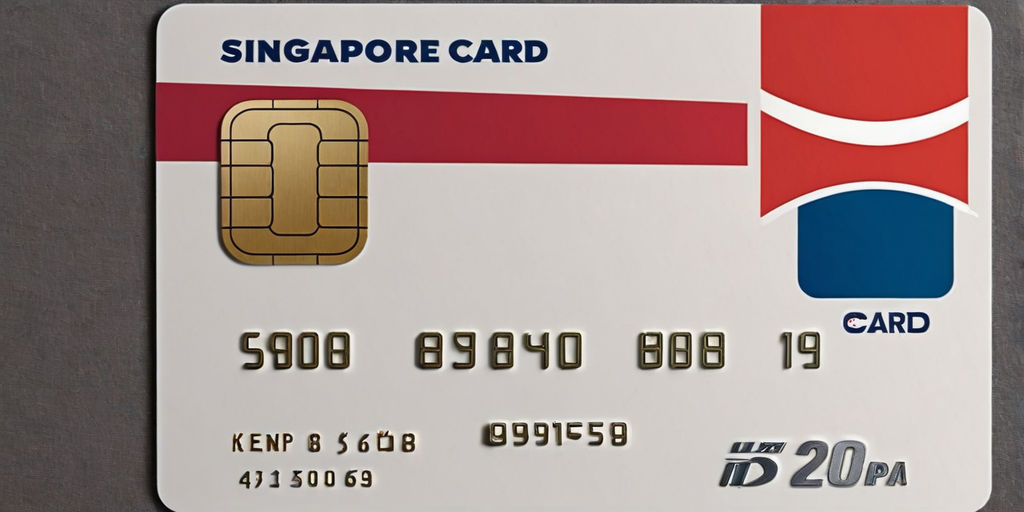
When it comes to choosing between a debit card and a credit card, it is important to consider your lifestyle and spending habits. Here are some factors to consider when choosing the right card for your lifestyle in Singapore.
Students and Young Professionals
If you are a student or a young professional just starting out, you may want to consider a debit card. Debit cards are a great way to manage your spending and stay within your budget. They also help you avoid accumulating debt, which can be a problem for many young people.
However, if you are looking to build your credit history, a credit card may be a better option. Many credit cards offer rewards and cashback programmes, which can be useful if you are looking to save money.
Frequent Travellers and Shoppers
If you are a frequent traveller or shopper, a credit card may be a better option. Many credit cards offer rewards and perks such as air miles, cashback, and discounts on travel and shopping. These benefits can add up quickly and help you save money on your purchases.
However, if you are not a frequent traveller or shopper, a debit card may be a better option. Debit cards are more straightforward and easier to manage, and they can help you avoid overspending.
High-Income Earners Seeking Premium Perks
If you are a high-income earner seeking premium perks, a credit card may be the best option for you. Many credit cards offer exclusive privileges such as access to airport lounges, concierge services, and other premium benefits. These perks can be useful if you travel frequently or have a busy lifestyle.
However, if you are not interested in these premium perks, a debit card may be a better option. Debit cards are more straightforward and easier to manage, and they can help you avoid accumulating debt.
In conclusion, when choosing between a debit card and a credit card, it is important to consider your lifestyle and spending habits. Whether you are a student, a frequent traveller, or a high-income earner seeking premium perks, there is a card that is right for you.
Considerations for Foreign Transactions and Travel

Travelling to foreign countries can be exciting and fun, but it can also be stressful when it comes to managing your finances. In Singapore, both debit and credit cards can be used for foreign transactions, but there are some important things to consider before you decide which one to use.
Currency Exchange and Multi-Currency Accounts
When travelling abroad, you may need to convert your Singapore dollars to the local currency of the country you are visiting. This can be done through currency exchange services or by using a multi-currency account. Multi-currency cards allow you to hold and spend in multiple currencies, which can be beneficial if you are travelling to multiple countries or if you frequently make foreign transactions.
Foreign Transaction Fees and Global Acceptance
When using your debit or credit card for foreign transactions, you may be charged a foreign transaction fee. This fee is usually a percentage of the transaction amount and can add up quickly if you make a lot of foreign transactions. Travel credit cards often offer lower foreign transaction fees or even waive them altogether, making them a good option for frequent travellers.
Another important consideration is global acceptance. While Visa and Mastercard are widely accepted around the world, some countries may have a preference for one over the other. It’s a good idea to check which card is more widely accepted in the country you are visiting before you leave.
In summary, when it comes to foreign transactions and travel, there are several things to consider when choosing between a debit or credit card. A multi-currency account can be useful for frequent travellers, while a travel credit card may offer lower foreign transaction fees. It’s also important to check the global acceptance of your card before you travel.
Exclusive Features of Singapore’s Top Debit Cards

If you’re looking for a debit card in Singapore, you’ll be pleased to know that there are plenty of options available to you. From DBS Visa Debit Card to POSB Passion Debit Card and OCBC Frank Debit Card, each card comes with its own set of exclusive features that make it stand out from the rest. Let’s take a look at some of the best features of Singapore’s top debit cards.
DBS Visa Debit Card and Multi-Currency Account
The DBS Visa Debit Card is one of the most popular debit cards in Singapore, and for good reason. With this card, you can enjoy up to 10% cashback on online food delivery and local transport when you spend a minimum of S$500 on Visa and keep your cash withdrawals to S$400 and below in the same month. But that’s not all. The DBS Visa Debit Card also comes with a DBS Multi-Currency Account, which allows you to hold up to 13 different currencies and make payments in the local currency when you travel overseas. This means you don’t have to worry about currency conversion fees or fluctuating exchange rates.
POSB Passion Debit Card and Its Rewards
The POSB Passion Debit Card is another great option for those looking for a debit card in Singapore. This card is perfect for those who love to shop, dine, and play. With the POSB Passion Debit Card, you can earn up to 6% cashback on your daily essentials, such as groceries and utilities, and up to 3% cashback on dining and entertainment. Additionally, you can also enjoy exclusive discounts and promotions at over 1,000 merchants islandwide, including Cathay Cineplexes, Pizza Hut, and Watsons.
OCBC Frank Debit Card and Young Savers
If you’re a young saver looking for a debit card in Singapore, the OCBC Frank Debit Card is definitely worth considering. This card is designed for students and young adults aged 16 to 26 and comes with a range of exclusive benefits. With the OCBC Frank Debit Card, you can enjoy up to 6% cashback on online shopping, entertainment, and dining, as well as exclusive discounts and promotions at over 120 merchants islandwide. Additionally, you can also customize your card design to suit your style and personality.
In conclusion, each of Singapore’s top debit cards comes with its own unique set of features that make it stand out from the rest. Whether you’re looking for cashback rewards, multi-currency accounts, or exclusive discounts and promotions, there’s a debit card out there that’s perfect for you.
Navigating Fees, Charges, and Limitations
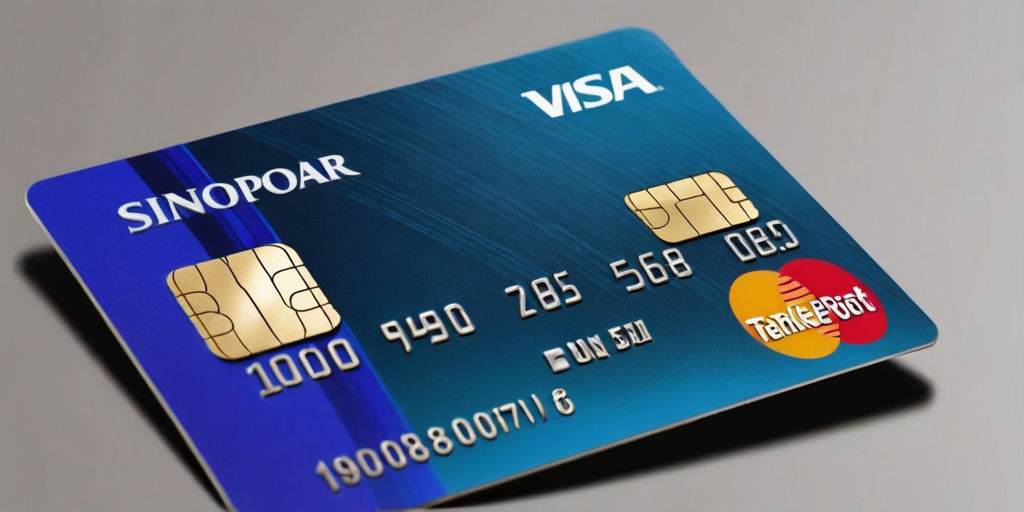
When it comes to choosing between a debit card and a credit card, understanding the fees, charges, and limitations is essential. Here are some factors to consider:
Understanding Annual and Replacement Fees
Credit cards usually come with an annual fee, which can range from a few dollars to several hundred dollars. In contrast, most debit cards do not have an annual fee. However, some banks may charge a replacement fee if you lose your debit card or need to get a new one.
ATM Withdrawals and Cash Advance Fees
If you frequently withdraw money from ATMs or need to take out cash advances, a credit card may not be the best option. Credit card companies typically charge higher fees for cash advances, and the interest rate on cash advances is usually higher than the interest rate on purchases. On the other hand, debit cards usually allow you to withdraw cash from ATMs for free or for a lower fee.
Transaction Limits and Fund Availability
Both debit and credit cards have transaction limits, which can vary depending on the bank and the type of card. Credit cards usually have higher transaction limits than debit cards, but they also have a credit limit, which is the maximum amount you can borrow. If you exceed your credit limit, you may be charged an over-limit fee.
Debit cards, on the other hand, are linked to your bank account, and the amount you can spend is limited by the balance in your account. If you have limited funds in your account, you may not be able to make certain purchases or pay certain bills. It is important to keep track of your account balance to avoid overdraft fees.
In summary, both debit cards and credit cards have their advantages and disadvantages when it comes to fees, charges, and limitations. It is important to consider your spending habits and financial goals when choosing between the two.
Frequently Asked Questions

What are the perks of using a credit card over a debit card in Singapore?
When using a credit card in Singapore, you can enjoy various perks such as cashback, rewards points, and travel benefits. Many credit cards also offer exclusive discounts and promotions at selected merchants, making them a preferred choice for many consumers.
How do debit cards in Singapore differ from credit cards in terms of financial management?
Debit cards in Singapore are directly linked to your bank account, allowing you to spend only the available funds. This feature promotes responsible spending and helps you avoid accumulating debt, unlike credit cards, which allow you to spend beyond your current balance.
What exclusive benefits do prestigious credit cards offer in Singapore?
Prestigious credit cards in Singapore often come with exclusive privileges, including access to airport lounges, concierge services, and lifestyle perks such as dining and entertainment offers. These cards are tailored to high-income individuals and frequent travellers.
Can you explain the impact of choosing to process a payment as debit rather than credit?
When choosing to process a payment as debit, the transaction is directly deducted from your bank account, offering immediate fund transfer. On the other hand, processing a payment as credit allows for a delayed payment, providing more time to manage your finances.
What are the requirements to obtain an American Express debit card in Singapore, and are there any associated charges?
To obtain an American Express debit card in Singapore, you typically need to hold a valid bank account with the issuing bank. While specific requirements may vary, some banks may charge an annual fee for premium debit card services.
In terms of maintaining a minimum balance, how do debit cards compare to credit cards in Singapore?
Debit cards in Singapore often require you to maintain a minimum balance in your linked bank account. In contrast, credit cards do not have such requirements, as they allow you to spend up to a predetermined credit limit without the need for a minimum balance.

